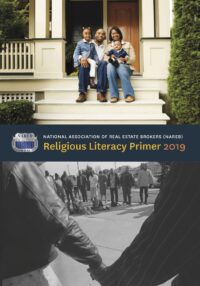People of African descent have a long heritage in the Episcopal Church. Over the past 130 years there have been 38 Black bishops consecrated in the Episcopal Church. These bishops hail from the African Diaspora, as well as Africa. All bishops are assigned a number by the Secretary of the House of Bishops according to their date of consecration. For example, Bishop James Theodore Holly was the first Black Episcopal Bishop, consecrated November 8, 1874, the first Bishop of Haiti, number 106a. The most recently consecrated Black bishop is number 1010 in the American Succession, Nathan D. Baxter, Bishop of the Diocese of Central Pennsylvania, consecrated October 21, 2006.
Today the Episcopal Church maintains a directory of Black Congregations by diocese, along with resources tailored specifically for Black congregations. The Episcopal Church in the United States is a member church of the worldwide Anglican Communion. It is a mainline Christian denomination divided into nine provinces. The presiding bishop of the Episcopal Church is Michael Bruce Curry, the first African-American bishop to serve in that position. The church was organized after the American Revolution, when it became separate from the Church of England, whose clergy are required to swear allegiance to the British monarch as Supreme Governor of the Church of England.
The Book of Common Prayer, a collection of traditional rites, blessings, liturgies and prayers used throughout the Anglican Communion, is central to Episcopal worship. The Episcopal Church was active in the Social Gospel movement of the late 19th and early 20th centuries. Since the 1960s and 1970s, the church has pursued a decidedly more liberal course. It has opposed the death penalty and supported the Civil Rights Movement and affirmative action. Some of its leaders and priests are known for marching with influential civil rights demonstrators such as Martin Luther King, Jr. The church calls for the full legal equality of LGBT people. In 2015, the church’s 78th triennial General Convention passed resolutions allowing the blessing of same-sex marriages and approved two official liturgies to bless such unions.x The Episcopal Church ordains women and LGBT people to the priesthood, the diaconate and the episcopate, despite opposition from a number of other member churches of the Anglican Communion. In 2003, Gene Robinson became the first openly gay person ordained as a bishop.
